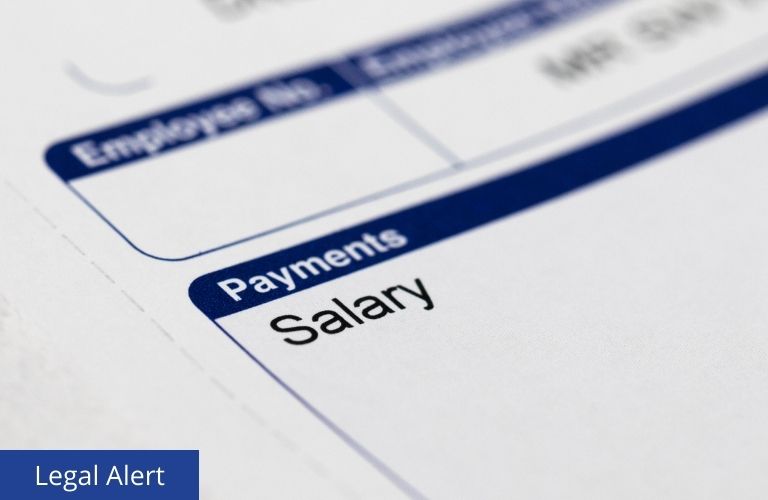
On November 1, 2022, New York City’s Wage Transparency Law takes effect, intended to promote pay equity. The new law amends the New York City Human Rights Law (NYCHRL), Title 8 of the Administrative Code of the City of New York, to require private-sector employers advertising jobs in New York City to include a good faith salary range for every job, promotion, and transfer opportunity advertised.
Covered Employers
The new law applies to employers that have four or more employees (including independent contractors and owners). The four employees do not need to work in the same location, nor do they all need to work in New York City. As long as one of the employees works in New York City, the employer is covered. Employment agencies are also covered by the new law, regardless of their size.
The law does not apply to temporary help firms advertising for temporary employment. Temporary help firms are defined by the New York Labor Law (Article 31) as businesses that recruit, hire, and assign their own employees to perform work or services for other organizations. Employers who work with temporary help firms, however, must follow the new salary transparency law.
Jobs Listings Covered by the New Law
The law covers any advertisement for a job, promotion, or transfer opportunity that can or will be performed, at least in part, in New York City. Fully remote positions will likely be covered. According to a guidance publication issued by the New York City Commission on Human Rights (NYCCHR), found here, an advertisement is defined as a written description of an available job, promotion, or transfer opportunity that is publicized to a pool of potential applicants. Covered listings include postings on internal bulletin boards, internet advertisements, printed flyers distributed at job fairs, and newspaper advertisements. The law does not prohibit employers from hiring without using an advertisement nor require employers to create an advertisement in order to hire, promote, or transfer.
What Must Be Included in Job Advertisement
The new law amends Section 8-107 of New York City’s administrative code to require employers and employment agencies that advertise a job, promotion, or transfer opportunity to state the minimum and maximum salary for such position in such advertisement. For positions solely compensated on a commission basis, a general statement that compensation will be based on commission is sufficient to satisfy the law.
In stating the minimum and maximum salary for a position, the range may extend from the lowest to the highest salary the employer in good faith believes at the time of the posting it would pay for the advertised job, promotion, or transfer opportunity. “Good faith” means the salary range the employer honestly believes at the time they are listing the job advertisement that they are willing to pay the successful applicant.
According to the NYCCHR’s guidance publication, salary does not include other forms of compensation or benefits offered in connection with the advertised job, promotion, or transfer opportunity, such as health insurance, paid time off, 401(k) contributions, and other employee benefits. Employers should clarify that ranges only include base salary and not necessarily total compensation.
Enforcement and Penalties for Non-Compliance
Employers and employment agencies will be subject to a civil penalty of $0 for a first violation of the law if the employer or employment agency proves, within 30 days of the service of a copy of a complaint, that the violation has been cured.
Thereafter, and if the first violation is not cured, penalties are outlined by Section 8-126 of the NYCRR, which states that where the Commission finds that a person has engaged in an unlawful discriminatory practice, the Commission may, to vindicate the public interest, impose a civil penalty of not more than $125,000. Where the Commission finds that an unlawful discriminatory practice was the result of a willful, wanton or malicious act or where the Commission finds that an act of discriminatory harassment or violence has occurred, the Commission may, to vindicate the public interest, impose a civil penalty of not more than $250,000.
Under the law, only employees may bring an action against their current employer for violations thereunder, prohibiting relief for unsuccessful applicants applying for positions.
If you have any questions regarding this new law, please contact your labor and employment counsel at Smith, Gambrell & Russell, LLP.

